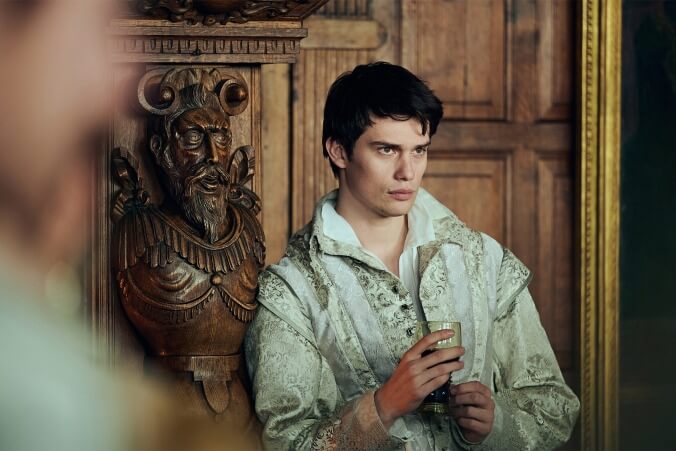Mary & George review: Julianne Moore and Nicholas Galitzine sizzle in Starz's historical drama
Prepare for a lust-driven narrative of Shakespearean proportions

At the heart of Starz’s new limited series Mary & George is a thrilling piece of British history. Set in the Jacobean era, the show (which premieres April 5) tracks the unlikely rise of one George Villiers (eventually the 1st Duke of Buckingham) from a rebellious, wayward teenager to a cunning political operative whose close relationship with King James VI and I continues to titillate scholars. George was pushed into such a fate by his equally ambitious mother, Mary Villiers. Their relationship and tumultuous twinned history in the shadow of King James is, as depicted, a lust-driven narrative of Shakespearean proportions. This is no dry history lesson; it’s quite wet, in fact. Yet despite its provocative premise, this loose adaptation of Benjamin Woolley’s The King’s Assassin is a rather stale and stilted affair.
Desperately, though, Mary & George tries to liven up the story it’s telling. And really, it’s quite a story. This is a narrative of a young boy learning the ways of the world to better leverage his body, his looks—his lust, even—into an ambitious plan to help himself, his mother, his family, and, perhaps, his country as well. When we first meet George (Nicholas Galitzine), he’s a much too sensitive boy. He pouts and broods. He’s the kind who would rather act out and hang himself than be told what to do by his mother. Thankfully, his mother (Julianne Moore) has no time for such petty antics. She cuts off the rope and reminds him that the plan remains the same: He will go to France, where he’ll get the schooling he needs to find a way to succeed in the world.
George is the second son, usually a most useless moniker. He won’t inherit anything from his family, and his prospects are thus quite curtailed. But Mary knows there’s greatness in him, if only he’d embrace what he could do with that body, with those lips, and with that face. No matter that Mary & George is populated by plenty of boys who are infinitely hotter (or, at least, more interesting looking) than Galitzine; indeed, his hosts in France, who teach him how to fence, how to dance, and how to fuck even, are just as delectable-looking as the Internet’s latest himbo boyfriend. Then again, especially in those early episodes when George is slowly coming into his own, eventually nudged to seduce the King, whose predilection for young boys is an open secret, you watch Galitzine struggle with finding his character’s anchor. Playing unknowing insouciance is hard enough; to do so while suggesting there’s something more in one’s eyes and in one’s body is harder still. You have to buy that this young cad would, with one look, leave a man like King James dumbstruck. I never quite bought that, not when Laurie Davidson scorches up the screen whenever his Earl of Somerset comes on screen—and reminds George and audience alike why he’s the King’s preferred boy. And he is, as such, George’s greatest obstacle to climbing up the ranks and into King James’s bed, which—spoiler alert—he eventually accomplishes.
Behind it all is Mary, who’s as viciously cunning as she is ambitious. Even when she knows her firstborn is unlikely to nab her a well-off engagement and when she loses all she has, she climbs her way back up with a marriage the terms of which leave her at the mercy of George succeeding. Unlike Galitzine, who struggles with the various notes George calls him to play, Moore is truly dialed into the woman Mary was. Cruel at times and callous at others, this is a woman who understands how the world works and who is intent, then, to bend it to her will by whatever means is necessary. That means basically pimping out her son to the King, all but kidnapping a girl to marry to her first son, and even poisoning men who dare come between her and her lofty goals. That she also finds time to nurture a sly relationship with a prostitute (Niamh Algar’s Sandie) all while spouting deliciously acerbic putdowns to those in court who see through her social climbing ways is proof that Moore has been craving this kind of character.








































